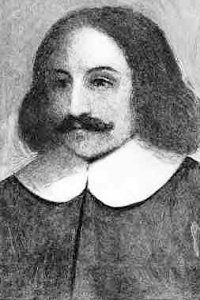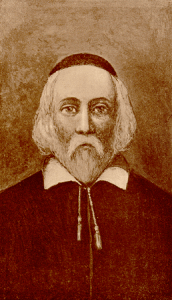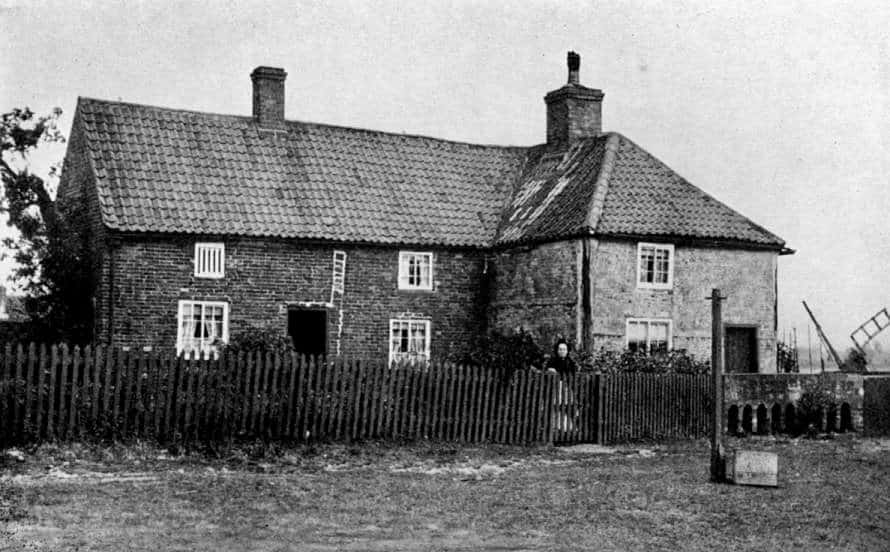The Extraordinary Adventures of Ordinary Believers Who Worked Out Their Salvation with Fear and Trembling
Part 1
But you are a chosen generation, a royal priesthood, a holy nation, His own special people, that you may proclaim the praises of Him who called you out of darkness into His marvelous light.
—1 Peter 2:9—
The Pilgrims comprised one of the most remarkable congregations that has ever existed on the face of this earth.
—D. James Kennedy1—
Key point: Members of the Separatist congregation in Scrooby, England in the 1600s — believers who later became known as “Pilgrims” — serve as examples not only of how to “do Christianity,” but also of how to “do church.”
Last time we explored the importance of taking salvation seriously, of “working out one’s salvation with fear and trembling” (Phil. 2:12). It’s fascinating to note both individual and corporate manifestations of this process. Not only must individual Christians work out their own salvation, churches and other Christian groups frequently must do the same. In the Pilgrims—believers who fled England for Holland, then Holland for the New World during the early 1600s and established the Plymouth Colony in what is now Massachusetts—we see evidence of the “working out process” at a congregational level. In this two-part series, I’d like to consider how this process was manifested in the Pilgrims’ decisions and actions up until the time they resolved to leave Holland for North America.
The Church in England

The Protestant Reformation is considered to have officially begun in 1517 when Martin Luther, a German monk, released his 95 Theses, a document in which he pointed out and objected to numerous abuses by and within the Roman Catholic Church. The Reformation soon became a movement that spread throughout Europe, wielding its influence in numerous countries beyond Germany.
King Henry VIII, who ruled in England from 1509 to 1547, officially pulled his country away from the Roman Catholic Church in 1534. In that year he declared himself sovereign over a new national church, which, not surprisingly, he called the Church of England. His actions weren’t theologically motivated, but we can’t fully consider that part of the story at this point. Suffice it to say that the move was a very big deal. King Henry, and eventually his daughter, Queen Elizabeth I, who ruled from 1558 to 1603, instituted a number of changes that made England’s new national church distinct from the Church headquartered in Rome. Even so, some of Henry’s subjects didn’t believe enough had been changed. These Christians wanted to see and experience forms of worship that were simpler and less elaborate. Appealing to the Book of Acts, they called for a return to the worship practices of the early Christians. These men and women became known as Puritans, because they advocated purifying the church in this way.

Another group of believers went further. Seeing the Church of England as beyond reforming, they sought to break away from the national church and form congregations of their own. In a day when church and state were intertwined, departure from the national church would be deemed treasonous. Thus, these men and women were risking a great deal, both individually and as a group of believers.

In the town of Scrooby in Nottinghamshire, England, between 1586 and 1605, a Separatist congregation was formed that included William Brewster (1568-1644) and a young man by the name of William Bradford, who had been born around 1590. Brewster previously had served as a diplomatic assistant to the Netherlands. Because of the congregation’s convictions about the need to separate from the national church, the group faced ridicule, harassment, and in some cases, arrest and imprisonment.
Costly Convictions
William Bradford later would describe the situation by saying members of the congregation
were hunted and persecuted on every side, until their former afflictions were but as flea-bitings in comparison. Some were clapped into prison; others had their houses watched night and day, and escaped with difficulty; and most were obliged to fly, and leave their homes and means of livelihood. Yet these and many other even severer trials which afterwards befell them, being only what they expected, they were able to bear by the assistance of God’s grace and spirit. However, being thus molested, and seeing that there was no hope of their remaining there, they resolved by consent to go into the Low Countries, where they heard there was freedom of religion for all; and it was said that many from London and other parts of the country, who had been exiled and persecuted for the same cause, had gone to live at Amsterdam and elsewhere in the Netherlands. So after about a year, having kept their meeting for the worship of God every Sabbath in one place or another, notwithstanding the diligence and malice of their adversaries, seeing that they could no longer continue under such circumstances, they resolved to get over to Holland as soon as they could….2
Weary of the persecution and longing for freedom in their religious practices, the group fled England for Holland in 1608. They first resided in Amsterdam, then moved to Leyden a short time later.
Lessons from Godly Ancestors
The Separatist congregation stayed in Holland for over 10 years. We’ll consider those years next time, but for now, let’s reflect on the Pilgrims’ journey up until the time they made their decision to leave England. Several observations are in order.
First, these believers knew what it was like to face ridicule and persecution because of their faith, yet they refused to compromise. Their consciences were beholden to their God. Today, we need more believers like that. Persecution was just one aspect of the price they paid.
The Pilgrims’ consciences were beholden to their God.
Second, the Pilgrims apparently didn’t expect their Christianity to bring them ease and comfort. I list this as a separate item because the hardships they endured strengthened rather than derailed them. It’s never fun to endure persecution, but when we expect resistance from the world, we do not become disillusioned. Jesus said, “In the world you will have tribulation; but be of good cheer, I have overcome the world” (John 16:33).
Third, they took their relationship with God so seriously that they even were willing to relocate to another country in order to worship Him as they believed they should. How precious to you is your relationship with the Lord? How important to you is your worship of Him?
Fourth, they acted, not individually, but as a church. This not only served to encourage them as individuals and families; it also increased the impact of their strategic actions. In Acts, we do not see an emphasis on accepting Christ as one’s personal Lord and Savior to the extent we hear that emphasis today. Certainly accepting Christ into one’s life is legitimate; in fact, it is absolutely necessary. Yet in Acts, there was a corporate element that we seem to have lost.
Believers today need to rediscover the importance of corporate Christianity.
 Jesus was and is Lord of the church. This theme permeated Charles Colson’s classic book, The Body. The Body later was revised, updated, and retitled Being the Body. We need to rediscover and reapply the corporate Christianity the Pilgrims practiced and Colson upheld. This is biblical Christianity. The Pilgrims knew God had called them out as “a holy nation” (see 1 Pet. 2:9). They lived out the principle set forth in 1 Peter 1:22: “Since you have purified your souls in obeying the truth through the Spirit in sincere love of the brethren, love one another fervently with a pure heart.” Wouldn’t this perspective, if it fully were applied in our churches today, bring God’s people together in ways that profoundly would change both the church and the world?
Jesus was and is Lord of the church. This theme permeated Charles Colson’s classic book, The Body. The Body later was revised, updated, and retitled Being the Body. We need to rediscover and reapply the corporate Christianity the Pilgrims practiced and Colson upheld. This is biblical Christianity. The Pilgrims knew God had called them out as “a holy nation” (see 1 Pet. 2:9). They lived out the principle set forth in 1 Peter 1:22: “Since you have purified your souls in obeying the truth through the Spirit in sincere love of the brethren, love one another fervently with a pure heart.” Wouldn’t this perspective, if it fully were applied in our churches today, bring God’s people together in ways that profoundly would change both the church and the world?
The Pilgrims would continue to desperately need their God and one another. Holland would offer them the religious freedom they sought, but also a variety of daunting challenges.
Next time, we’ll explore some of those challenges and how the Pilgrims responded. Their example will inspire and encourage.
I promise.
Part 2 is available here.
Copyright © 2017 by B. Nathaniel Sullivan. All rights reserved.
top image: birthplace of William Bradford in Austerfield, South Yorkshire, England
Unless otherwise indicated, Scripture has been taken from the New King James Version®. Copyright © 1982 by Thomas Nelson, Inc. Used by permission. All rights reserved.
Notes:
1Jerry Newcombe, compiler, The Wit and Wisdom of D. James Kennedy, (Fort Lauderdale, FL: Truth in Action Ministries, 2013), 150.
2William Bradford, Of Plymouth Plantation, Harold Padget, ed., (Kindle Locations 425-432). Portcullis Books. Kindle Edition. Original print release, 1920; Kindle edition, 2016.

[…] might help you better understand our situation. Our congregation of believers left England and moved to Holland so we would be able to worship God freely; then, after 11 or so years, we felt compelled to leave […]